Our love for samosas, however, doesn’t end with the monsoon season. In fact, samosas take centre stage during the month of fasting – Ramazan. No iftar table is complete without vegetable or minced meat samosay, served with various types of chutneys.
While growing up in Pakistan, I don’t remember samosas ever being made at home. They were always bought from our family’s favourite halwayee (specialised sweet makers). I learnt how to make samosas after I moved to London, as the local version just could not satisfy my taste buds. Ammi would always buy the uncooked vegetable samosay from Sajid Sweets in Saddar, Rawalpindi and freeze them. They were fried before iftar at home and served with home-made mint-coriander yoghurt chutney. I used to, and still do at times, make a concoction of ketchup and mint chutney, which is not a pleasant sight to look at, but tastes great with a samosa coupled with a sweet cup of tea for iftar.
With Ramazan and monsoon season not too far away, I thought it would be a good idea to share my version of the samosa recipe. I am planning to make a stock of these before the month of Ramazan begins this year in late June.
Special utensil : Griddle/Tava
Ingredients for the dough:
Flour – 1 Cup
Oil – 2 tbsp
Salt – ½ tsp
Carom Seed /Ajwain – ¾ tsp
Water – ½ cup for kneading (Use more if needed)
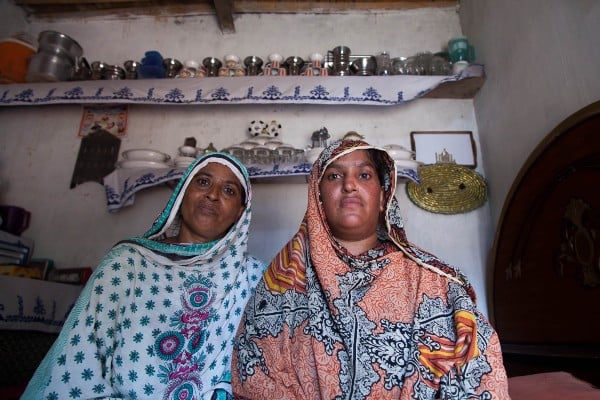 Photo: Ambreen Malik
Photo: Ambreen MalikKnead the dough softly but firmly with your hands or in the kneading machine. Use water as needed. Let the dough rest for an hour before making small dough balls; these should be a regular golf ball. This dough will make around 12 small dough balls to make 12 chapattis (24 samosas).
Filling:
Potatoes – 1 kg (peeled, boiled and mashed)
Onions – 2 medium (thinly chopped)
Oil – 3 tbsps for frying the onions
Fresh green chillies – 2 medium sized (thinly chopped)
Fresh coriander – 1/2 cup (chopped)
Fresh mint – 1/2 cup (chopped)
Roasted cumin seeds – 1 ½ tsps (heaped, crushed in pestle mortar)
Roasted coriander seeds – 1 ½ tsps (heaped, crushed in pestle mortar)
Anaar Dana powder (dried pomegranate powder) – 2 tsps
(Alternative: Dried mango powder (Aam choor) – 2 tsps
Crushed red chillies – ½ to 1 tsp (adjust to taste)
Salt – 1 tsp (heaped, adjust to taste)
 Photo: Ambreen Malik
Photo: Ambreen MalikMethod:
1. In a frying pan, pour three tablespoons of oil and fry the chopped onions till they are translucent. Do not brown. Place them on a kitchen tissue paper roll. Let the chopped onion cool off completely before use.
 Photo: Ambreen Malik
Photo: Ambreen Malik2. Mash the potatoes and add all the spices, cooked onions and herbs to it. Mix them thoroughly and set the mixture aside for an hour.
 Photo: Ambreen Malik
Photo: Ambreen MalikMaking the samosas:
1. Heat the griddle/ tava on the stove.
2. Mix three tablespoons of flour with four-five tablespoons of water. Make a thick paste. This will be used to bind the samosa crust together. Make more if needed.
3. Dust the working top with dry flour and roll out each dough ball in a round shape using a rolling pin. Flatten and stretch like a chappati.
4. After dusting off the excess flour, put the chappati on the hot griddle. Cook both sides for 15-20 seconds, so that it is stable enough to handle. No need to cook it through. Remove the chappatis from the stove one by one and store them in a hot pot like container so they stay warm and soft. Do remember to make all the chappatis before you begin to stuff them.
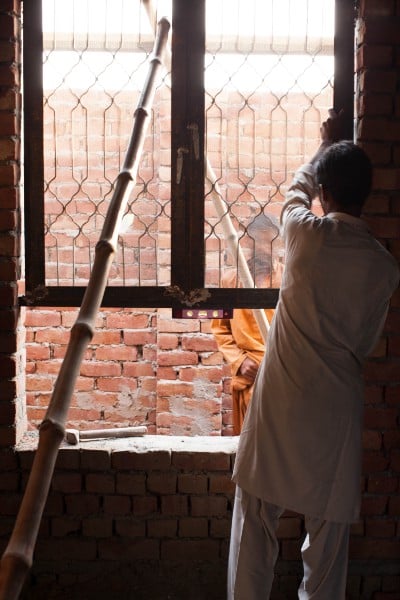 Photo: Ambreen Malik
Photo: Ambreen Malik5. Cut the chappatis in half. Each half will make one samosa.
 Photo: Ambreen Malik
Photo: Ambreen Malik6. Take half of the chapatti and apply flour paste on the straight edge and fold the sides together like an envelope. It will look like a cone.
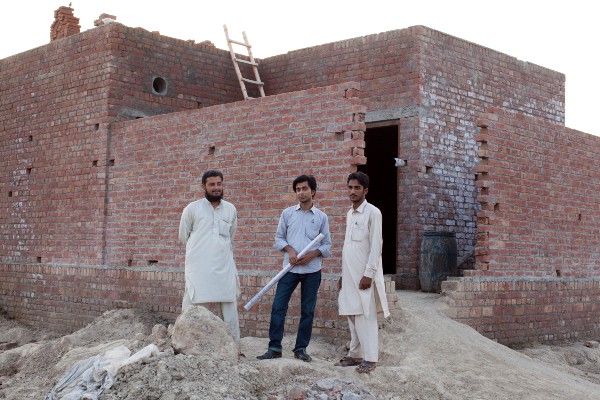 Photo: Ambreen Malik
Photo: Ambreen Malik7. Fill the cone with about one tablespoon of the potato stuffing. Do not overdo it. Seal the open side with the flour paste. Hold it together till it is firmly sealed.
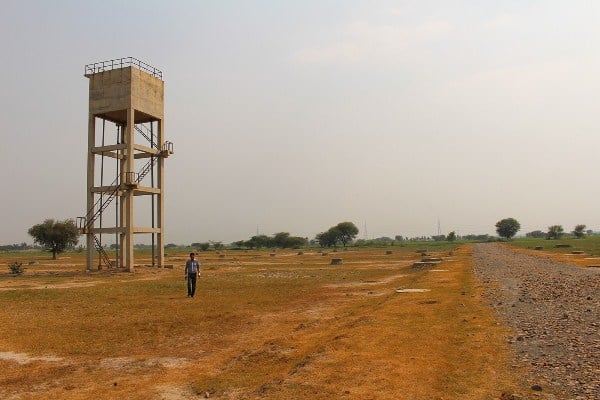 Photo: Ambreen Malik
Photo: Ambreen MalikFry them in medium hot oil and dry on kitchen tissue roll. Best served hot and crispy.
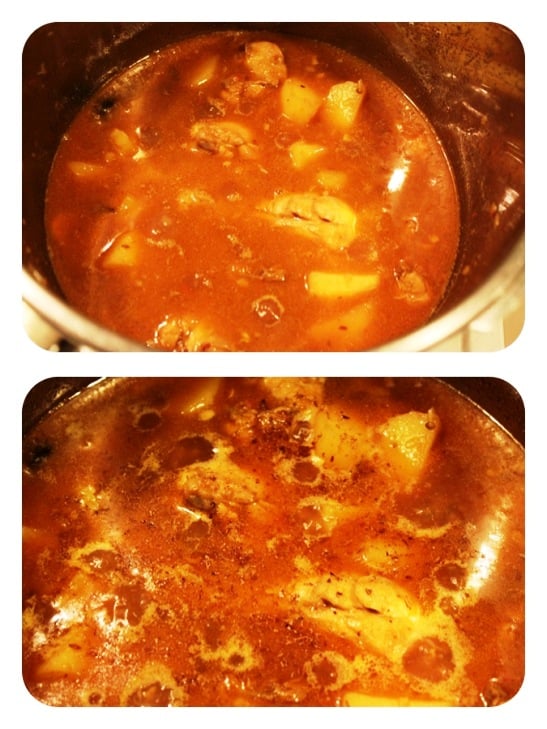 Photo: Ambreen Malik
Photo: Ambreen MalikThese samosas can be made in advance and stored in the freezer till needed. Defrost and fry them at your convenience.
Ingredients for the Green Mango Chutney
Unripe mangoes – 2-3 medium sized (peeled, diced)
Fresh mint – 1 cup
Fresh coriander – 1 cup
Green chillies – 2-3 (adjust to taste)
Lemon juice – 2 medium sized
Sugar – 2 tsp (heaped)
Salt – ½ tsp (adjust to taste)
 Photo: Ambreen Malik
Photo: Ambreen MalikMethod:
Blend everything together in a liquidiser with ¼ cup of water till it becomes a smooth paste. Check for taste. Adjust seasoning if required.
 Photo: Ambreen Malik
Photo: Ambreen MalikAnd there you have it, a delectable snack that can be used for all occasions. For me, these take the cake in Ramazan, but they can be served as hors d’oeuvres at your next gathering, surprise visits by friends or the tea-party you have been planning.
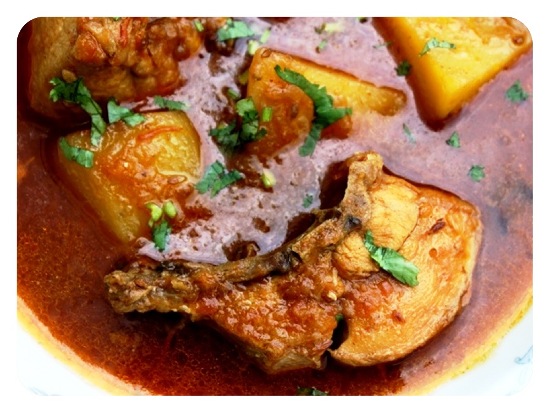 Photo: Ambreen Malik
Photo: Ambreen MalikDip them in the tangy chutney and enjoy an explosion of flavours in your mouth.
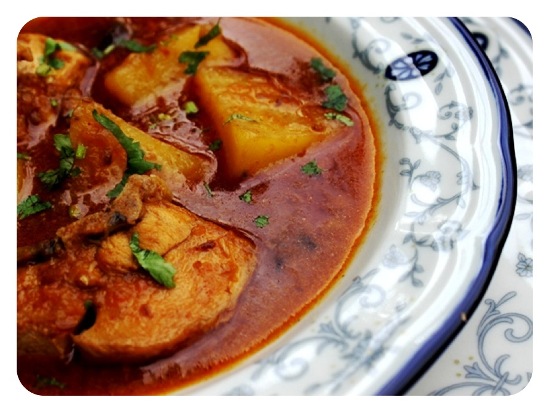 Photo: Ambreen Malik
Photo: Ambreen MalikThis post originally appeared here.

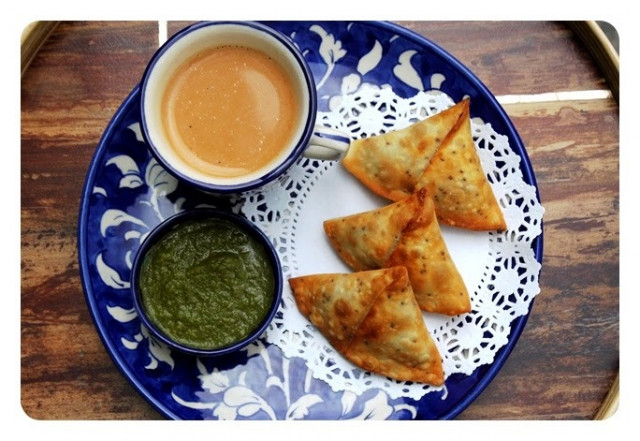

COMMENTS
Comments are moderated and generally will be posted if they are on-topic and not abusive.
For more information, please see our Comments FAQ